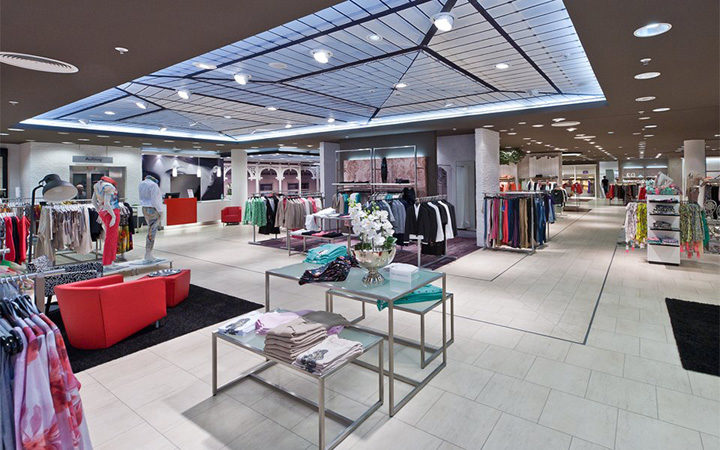In the ever-evolving landscape of fashion, the term fashion house signifies much more than a mere brand; it embodies the essence of luxury, creativity, and innovation. A fashion house serves as a beacon of style, showcasing the artistic vision of designers and influencing trends across the globe. In this article, we explore the multifaceted realm of fashion houses, their historical significance, notable players, and the future of fashion in an increasingly digital world.
Table of Contents
The Historical Significance of Fashion Houses
Fashion houses have a rich and storied history that dates back to the late 19th century. The establishment of the first haute couture houses in Paris marked a pivotal moment in fashion history. Charles Frederick Worth is often credited as the father of haute couture. His innovative approach to design and marketing set the groundwork for the modern fashion industry. Worth’s creations were characterized by meticulous craftsmanship and unique artistic flair, which garnered a loyal clientele of aristocrats and socialites.
By the early 20th century, other iconic fashion houses such as Chanel, Dior, and Balenciaga emerged, each leaving an indelible mark on the fashion landscape. Coco Chanel revolutionized women’s fashion by introducing more comfortable, stylish clothing, such as the famous Chanel No. 5 perfume and the little black dress. Similarly, Christian Dior changed the silhouette of women’s fashion with his groundbreaking “New Look” in 1947, emphasizing a return to femininity after the war.
Notable Fashion Houses: Icons of Style
Chanel
Founded by Coco Chanel in 1910, Chanel remains a quintessential example of a fashion house that symbolizes elegance and sophistication. The brand’s commitment to timeless style is evident in its classic designs, from the iconic Chanel suit to the interlocking “CC” logo. Chanel continues to innovate while paying homage to its rich heritage, making it a mainstay in the luxury fashion market.
Louis Vuitton
Established in 1854, Louis Vuitton has grown from a humble trunk maker to one of the world’s most recognized luxury brands. Known for its signature monogram canvas, Louis Vuitton excels in both fashion and accessories. The brand collaborates with various artists and designers, resulting in limited-edition pieces that merge art and fashion seamlessly.
Dior
Christian Dior founded his namesake brand in 1946, and it has since become synonymous with luxury and glamour. Dior’s focus on feminine elegance is evident in its haute couture collections and ready-to-wear lines. The brand’s commitment to craftsmanship and innovative design continues to set it apart in the competitive fashion landscape.
Gucci
With a history dating back to 1921, Gucci has established itself as a leader in the luxury fashion sector. Known for its bold designs and distinctive motifs, such as the double G logo and green-red-green stripe, Gucci has embraced contemporary trends while staying true to its heritage. The brand’s creative directors have played a crucial role in revitalizing Gucci, making it a symbol of modern luxury.
The Role of Fashion Houses in Contemporary Society
Fashion houses play a pivotal role in shaping not only personal style but also cultural identity. They act as trendsetters, influencing how society perceives beauty and elegance. Through fashion shows, advertising campaigns, and collaborations with celebrities, these houses communicate their vision to a global audience.
Fashion Shows: The Art of Presentation
Fashion shows are the lifeblood of fashion houses, serving as the ultimate platform to showcase new collections. Major fashion weeks held in cities like Paris, Milan, New York, and London attract industry insiders, celebrities, and fashion enthusiasts alike. These events are not merely about the clothing but are theatrical presentations that encapsulate the brand’s ethos and creative direction.
Sustainability and Ethical Fashion
In recent years, there has been a significant shift towards sustainability within the fashion industry. Consumers are increasingly aware of the environmental impact of fast fashion and are demanding more transparency from fashion houses. Many leading brands are adopting sustainable practices, such as using eco-friendly materials and ethical manufacturing processes. This commitment to sustainability not only addresses environmental concerns but also enhances brand reputation.
The Future of Fashion Houses: Digital Transformation
As we venture further into the 21st century, fashion houses are navigating the complexities of a digital-first world. The rise of e-commerce and social media platforms has transformed how consumers engage with brands. Fashion houses are now leveraging digital tools to reach a broader audience and create personalized shopping experiences.
E-commerce and Online Shopping
The e-commerce boom has revolutionized the retail landscape, allowing fashion houses to sell their products directly to consumers worldwide. This direct-to-consumer model eliminates traditional retail barriers, enabling brands to establish deeper connections with their clientele. Notably, luxury fashion houses have invested heavily in their online presence, offering exclusive online collections and virtual fashion shows.
Social Media Influence
Social media platforms like Instagram, TikTok, and Pinterest have become vital marketing tools for fashion houses. Influencers and fashion icons showcase their styles, creating buzz and driving engagement. This shift toward digital marketing has allowed brands to connect with younger audiences and cultivate a loyal following afs2014.org/.
Conclusion: The Enduring Allure of Fashion Houses
Fashion houses are more than just labels; they represent a rich history of creativity, luxury, and innovation. As we move forward, these houses must continue to adapt to changing consumer preferences while maintaining their core values. The enduring allure of fashion houses lies in their ability to inspire, challenge, and transform our understanding of style. By embracing sustainability, leveraging digital platforms, and staying true to their artistic roots, fashion houses will continue to shape the future of the fashion industry for years to come.
